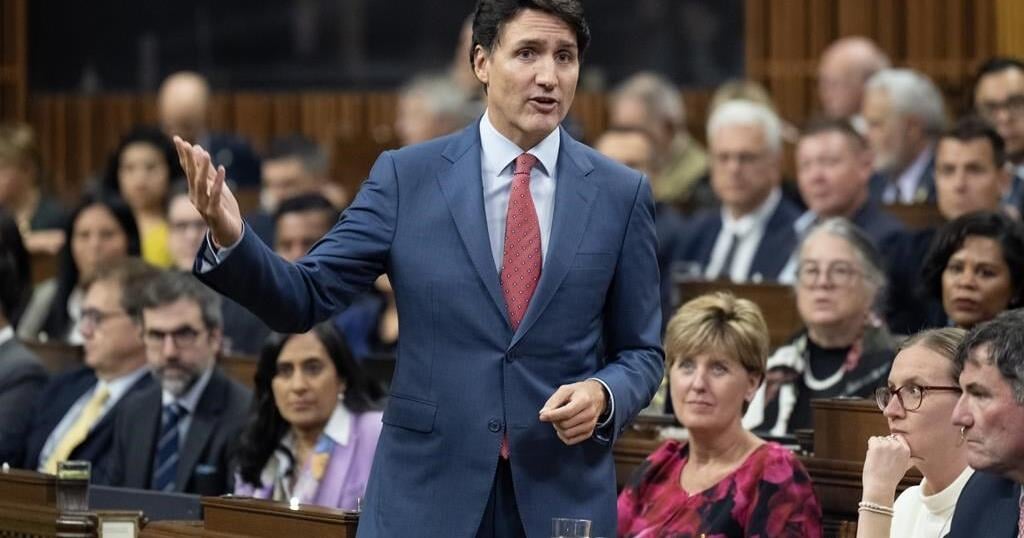MONTREAL – An investigation into a climate of fear at a Montreal primary school has reignited a debate about secularism in Quebec’s education system, with the provincial government pledging to consider new measures to keep religion out of classrooms.
Quebec’s education minister says the province’s secularism law, known as Bill 21, was not being respected at the school and could be strengthened. His comments follow a report released earlier this month that found a group of teachers at Bedford school, many of North African descent, subjected children to physical and psychological violence.
The issue has dominated Quebec headlines this week, after the opposition Parti Québécois labelled it “a case of Islamist infiltration” into the public school system, with the Coalition Avenir Québec government quickly following suit.
But critics say the focus on religion is a red herring that distracts from the fact authorities let the situation at Bedford continue for years without taking action.
On Tuesday, Quebec Premier François Legault made his first comments on the affair in a social media post, saying he was “very shocked” by the “attempt by a group of teachers to introduce Islamist religious concepts into a public school.”
It was a shift in tone for his government, which had previously avoided linking the situation at Bedford to religion.
The Education Department released its report on Bedford school on Oct. 11, the result of an investigation triggered by reporting last year from a Montreal radio station, which documented how a dominant clan of teachers imposed autocratic rule at the school.
The report found that teachers yelled at and humiliated students, and that some teachers didn’t believe in learning disabilities and attributed students’ difficulties to laziness. Subjects like science and sex education were either ignored or barely taught, and girls were prevented from playing soccer.
The investigation revealed that most members of the dominant faction were of North African descent, and that teachers were influenced by the local mosque. But it also pointed out that some teachers of North African heritage opposed the dominant clan, and the report characterized the situation as a clash of ideology rather than culture.
Eleven teachers at the school were suspended with pay over the weekend. On Tuesday, Education Minister Bernard Drainville said the teachers — a mix of men and women — have had their teaching licences suspended pending the outcome of disciplinary investigations.
In an appearance on popular Quebec talk show “Tout le monde en parle” on Sunday, more than a week after the report’s release, Drainville chose his words carefully, saying it was important not to stigmatize teachers of North African descent.
“Before saying that there is an issue of secularism or that there is an attempt by a religious movement to want to take control of one or more schools in Montreal, I have to be careful,” he said.
This week, that tone changed. On Monday, Parti Québécois Leader Paul St-Pierre Plamondon came out swinging, claiming there is a problem of “religious and ideological infiltration” in Quebec schools.
On Tuesday, Legault announced that he’d asked Drainville and Secularism Minister Jean-François Roberge “to look at what we can do as a government to strengthen controls and secularism in schools.”
Drainville told reporters the government has “a responsibility to look into what could be done to strengthen (Bill 21) in relation to Bedford and possibly in relation to other schools in Quebec.”
Investigations are underway at three other Montreal schools. On Wednesday, Drainville said he was looking into a fifth school following the publication of a news report about parents of North African origin who have decided to remove their child from the school over concerns about Muslim religious indoctrination.
But Louis-Philippe Lampron, a professor of human rights at Université Laval, said the government is using secularism as a smokescreen to distract from other issues. Teachers were forbidden from imposing their religious beliefs in classrooms well before the passage of Bill 21 in 2019, Lampron said, and the government already has “all the tools” it needs to deal with such matters.
The 2019 law banned teachers and other public sector workers from wearing religious symbols in the workplace.
The real scandal, Lampron said, is that the problems at Bedford school persisted for several years before the government’s investigation. “It’s a situation that’s gone on far too long,” he said. “Let’s call a spade a spade.”
Lampron said this week’s debate reminds him of Quebec’s reasonable accommodation crisis nearly 20 years ago, which was fuelled by public anxiety about minority groups. That crisis was driven in part by several incidents that received widespread media coverage, including accommodation for Muslim prayers at a traditional sugar shack, and a code of conduct for immigrants published in the hamlet of Hérouxville that was widely derided as Islamophobic.
A public commission struck to examine the issue found in 2008 that there was no real problem concerning the accommodation of minorities in Quebec, but Lampron said the subject remains “extremely politically sensitive.”
Tensions around the Bedford school report are running high this week. On Tuesday, Liberal member Marwah Rizqy, who has been speaking out about the school since last year, said she had requested police protection and feared for her safety. Earlier in the week, controversial imam Adil Charkaoui publicly accused Rizqy of exaggerating the problems at the school.
Samaa Elibyari, co-president of the Montreal chapter of the Canadian Council of Muslim Women, said it’s unfair to use Bedford school to fuel a broader debate about secularism.
“The impression I get is that there is a deficiency at the base of it. Those teachers, they are not well trained, they are not well adjusted, and this reflects of course in the ways of teaching,” she said. “I don’t see at all where religion comes in.”
This report by The Canadian Press was first published Oct. 24, 2024.
